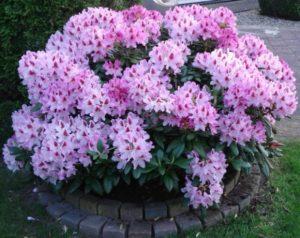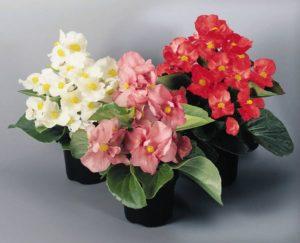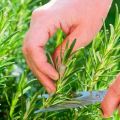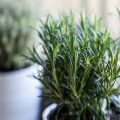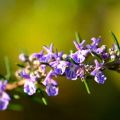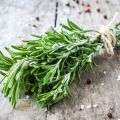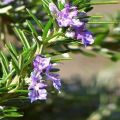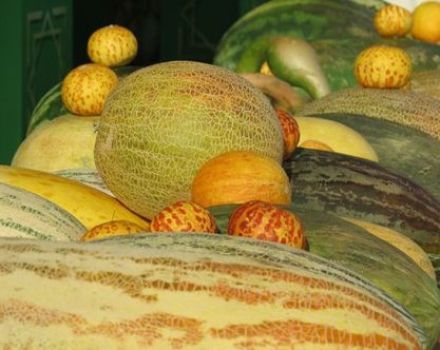Medicinal properties and contraindications to the use of rosemary, benefits and harms
The healing properties of rosemary have been known since ancient times. In the Mediterranean countries and in northern Africa, in the homeland of the plant, it has long been used in medicine, cosmetology, and cooking. The shrub does not withstand the Russian cold weather, rosemary can only be grown as an indoor culture. Consider the medicinal properties of rosemary, the scope and contraindications for use.
Chemical and vitamin composition
For medicinal purposes, the leaves and young shoots of the plant are mainly used, therefore rosemary is sometimes called herb. In fact, an evergreen shrub grows up to 2 meters, and chooses dry, ventilated slopes. It has thick needle-shaped leaves on short petioles that shine in blue. Bloom - April-May, bluish-purple flowers.
Studies have revealed a lot of nutrients included in leaves, flowers and shoots:
- vitamins - A, E, C, PP, group B;
- special rosemary oil - 0.3-1.2% of the raw material weight, in its composition - a set of terpenes and terpenoids;
- tannins;
- trace elements - zinc, calcium, zinc, potassium, iron, copper;
- omega and other unsaturated acids;
- alkaloids;
- amino acids;
- resin;
- bitterness;
- phytoncides.
Without knowing the composition, people have used rosemary in fresh and dried form since ancient times. When dried without heating, the beneficial substances remain almost unchanged.
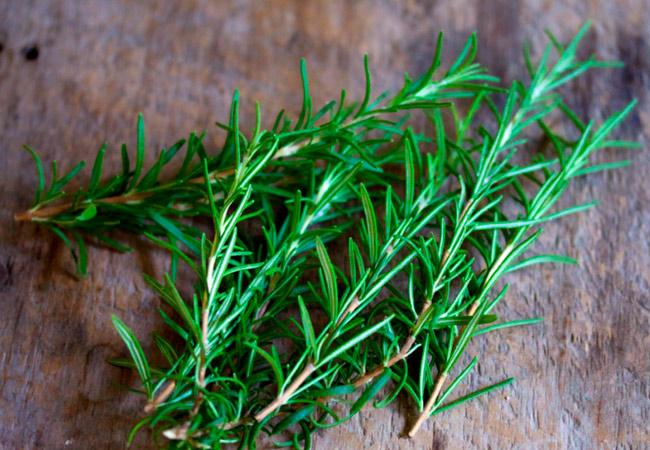
The benefits of rosemary for the human body
On the basis of rosemary, medicinal products are used to treat and prevent various diseases. During plague epidemics, the plant was used in Europe to protect against infection. Rosemary was part of the famous balm of mother d'Artagnan, with which he himself healed and supplied his wounded friends.
The following medicinal properties of the plant have been revealed:
- antiseptic, disinfectant - for internal use and cleaning premises from pathogenic flora, especially important during the cold season;
- stimulates the activity of the nervous system - with neurological abnormalities, exhaustion, apathy and lethargy;
- relieves pain syndromes - muscular, neurogenic, spastic in nature with osteochondrosis, neuralgia, migraines, pain in the heart and colic in the gastrointestinal tract;
- improves the secretory activity of the stomach, stimulates digestion;
- activates the work of the heart muscle, increases blood pressure;
- improves the production of bile;
- anti-inflammatory effect - with pathologies of the throat, diseases of the small pelvis;
- helps to overcome the consequences of a stroke - restores the patency of the cerebral vessels, stimulates memory and vision;
- has antioxidant and immunostimulating effects;
- removes phlegm from the lungs, improves asthma and bronchospasm;
- accelerates recovery processes in the dermis - relieves inflammation, has a wound-healing effect, is used to treat boils, abscesses;
- increases skin turgor by restoring water-fat balance, accelerates hair growth, activating dormant follicles.
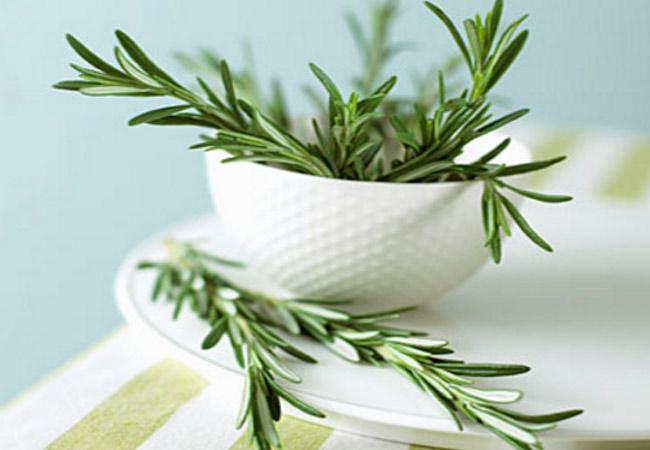
Rosemary suppresses the activity of pathogens of dangerous infections (fungi, some cocci, lamblia).
Reference: rosemary leaves are part of the phytopreparation Kanefron-N, which has an antispasmodic, anti-inflammatory, antimicrobial effect.
For woman
The beneficial properties of rosemary are widely used for the treatment and prevention of female diseases. The plant stabilizes hormonal levels, strengthens resistance to psycho-emotional stress and stress. Rosemary makes it easier to endure menopause, relieves irritability and pain in PMS. Women note that the spice relieves migraine attacks. With amenorrhea, the plant stabilizes the cycle, with vaginitis, leucorrhoea is used to irrigate the mucous membranes of the genital organs.
For a man
In the Eastern tradition, rosemary is considered an aphrodisiac - regular consumption increases male strength. The plant is used for the prevention and treatment of inflammation of the male genital organs - prostate, urethra. Infusions help support the production of hormones, stabilize the state of the nervous system in old age.
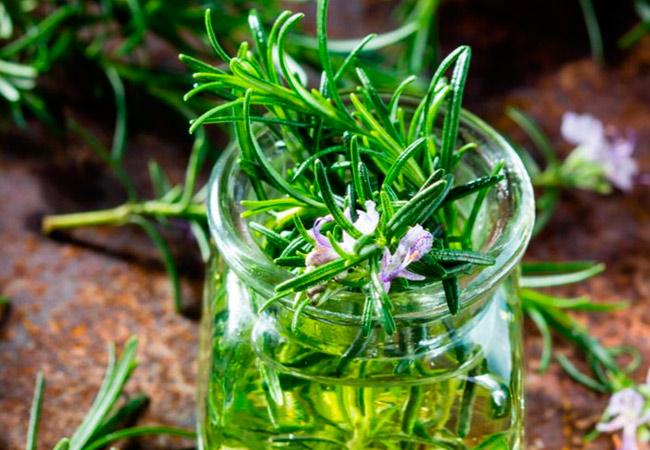
For kids
The use of rosemary is recommended for children from 6 years old. In childhood, the plant is used for the following purposes:
- strengthen the nervous system - improves attention, ability to concentrate;
- for skin pathologies - to heal wounds, restore damaged epidermis;
- for disinfection of children's rooms during the period of flu, other infectious diseases;
- for colds - for rinsing the throat, relieving inflammation of the mucous membranes;
- improve blood circulation - especially for children with ever-cold hands and feet.
Essential oil is used in the composition for inhalation for inflammation of the respiratory system.
Use in traditional medicine
When preparing home remedies, you can use fresh or dry raw materials. It is important to maintain proportions. Recall that phytotherapy is used as an adjuvant; in the treatment of complex diseases, a doctor's advice is required.
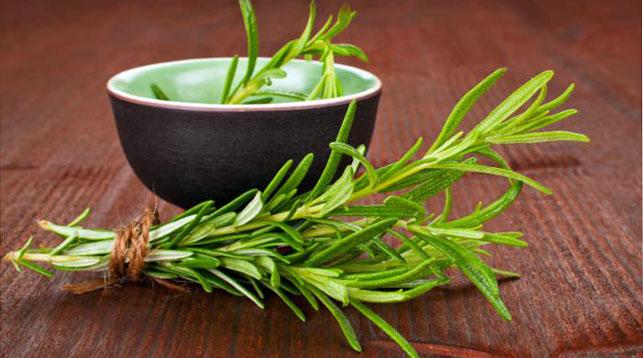
Decoction
To prepare a medicinal broth, 2 tablespoons of leaves are poured with a glass of boiling water. In an enamel saucepan, the mixture is brought to a boil, the heat is reduced to a minimum and kept for 15-20 minutes. Close with a lid and wait until it cools completely. Strain. Take a teaspoon of broth before meals. Helps with colic, exhaustion of the nervous system, inflammation of the respiratory tract, dysmenorrhea, cycle disorders.
Infusion
To prepare the medicine, a tablespoon of raw materials is insisted in a glass of boiling water for half an hour. Divided into 4-5 receptions and drunk per day. The water infusion is useful for gastrointestinal tract pathologies, heart and nervous disorders. They are also used to irrigate the mucous membranes of the throat, genitals in case of inflammation.
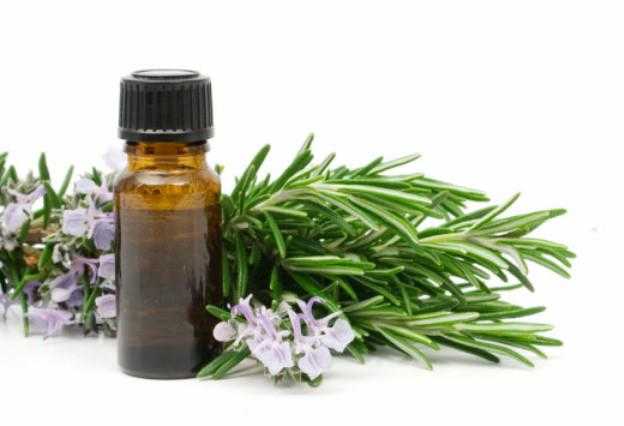
Inhalation
In the absence of a nebulizer, water is boiled in a saucepan. Take 4 tablespoons of dry raw materials or 2 branches of fresh rosemary per liter of water. Breathe over the pan for 5-10 minutes. To restore the health of the mucous membranes, it is important to correctly alternate breathing through the mouth and nose.
Healing tea
Foliage and flowers are used to make tea. Pour ½-1 teaspoon of raw material into a cup. Pour very hot, but not boiling water. Tea is drunk to prevent colds, used as a tonic for stress and a drop in immunity.
Relaxing bath
For the preparation of infusion for baths, leaves, flowers and the upper shoots of rosemary (30-50 grams) are used. Brewed in any container (you can use a thermos) and poured into water. Healing baths help with diseases of the joints, skin, spine, muscles. An excellent remedy for relieving stress, fatigue.

Application in cosmetology and weight loss
Infusions, decoctions and rosemary oil have long been used to restore female beauty in cosmetology. Ready-made shampoos, creams, masks are produced by the cosmetic industry. You can improve the composition of the purchased funds or prepare homemade drugs yourself.
Ways to use:
- with brittle nails - rub oil into plates, make baths for brushes and feet with rosemary decoction;
- in case of hair loss, massage with rosemary oil, masks for the scalp with the addition of other components, the infusion is used for rinsing;
- with acne, increased fat content of the skin - lubricate the rash with oil, wipe the skin with a frozen broth;
- to eliminate stretch marks, scars - use creams with the addition of oil, baths.
Antimicrobial action helps to eliminate inflammation on the face and body, after using products with rosemary, the regeneration processes on the skin are faster. By adding a drop of rosemary oil, you can improve the composition of conventional creams and lotions.
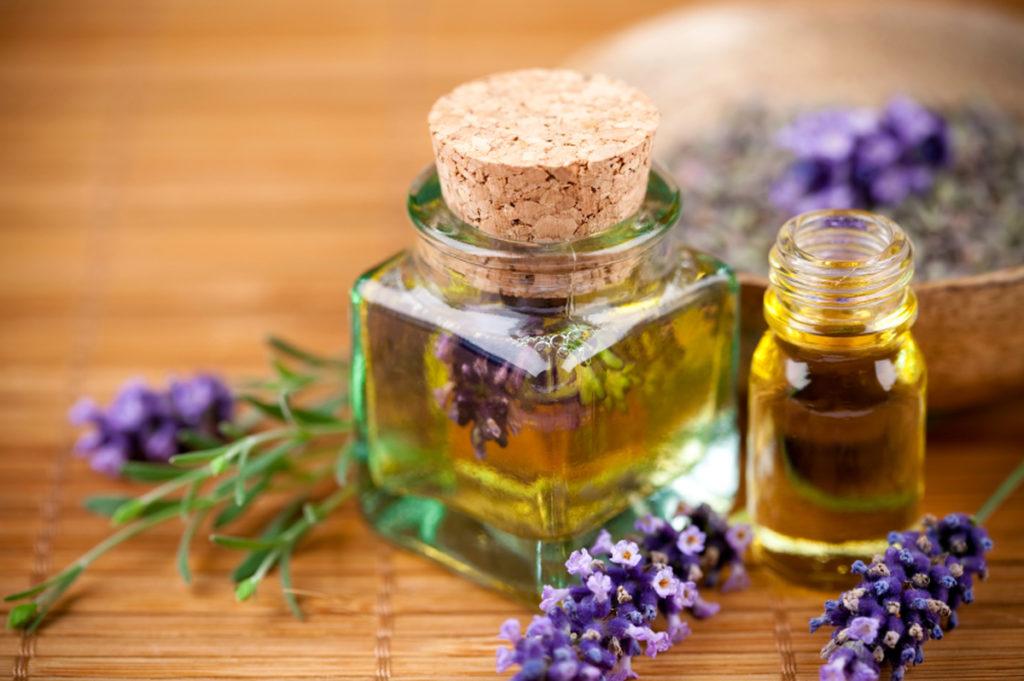
The fragrant seasoning "accelerates" the metabolism, stimulates the production of gastric juice and bile, therefore it is used by those wishing to lose weight. Tea, infusion or decoction of rosemary for weight loss is drunk in a course, 20 minutes before meals for 2-4 weeks.
Use as a condiment
The coniferous scent of spice can give a new taste to ordinary dishes. Rosemary is used as a condiment, not forgetting the following rules:
- when cooking, use only one of the ingredients - laurel or rosemary, spices are not combined;
- seasoning is used with any kind of meat, fish;
- rosemary improves the taste of legumes, root vegetables, enhances the smell of cheese;
- using spices to flavor vegetable oils;
- seasoning kills pathogens, added when canning;
- used in the preparation of soups, pizza, marinades, casseroles.
The pronounced smell of rosemary can spoil the dish, clogging up the natural aromas of the food. Add no more than a teaspoon of dry spice, fresh - use even less.
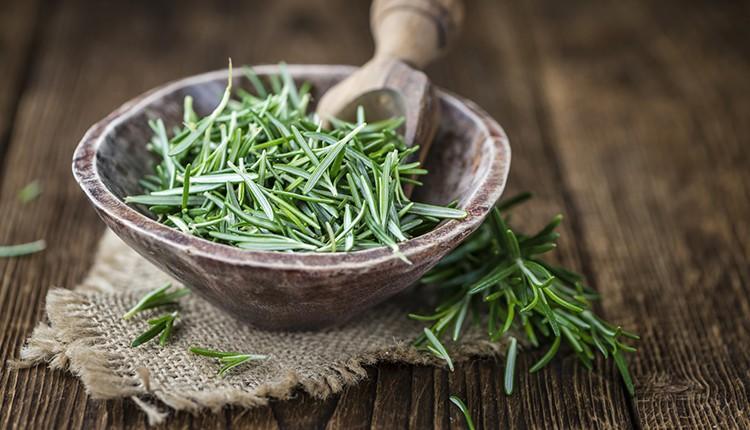
Note: you should season food with rosemary 3-5 minutes before cooking, although it is believed that the aroma of the spice does not change with long cooking.
Possible harm and contraindications
When using rosemary in any way, the existing contraindications and restrictions should be taken into account:
- hypertension;
- allergy;
- kidney pathology due to diuretic action;
- epilepsy;
- breast-feeding;
- children under 6 years old.
For any chronic diseases and pregnancy, treatment with rosemary must be agreed with a doctor, use the spice with caution.

Collection, storage and procurement
In Russia, many grow rosemary in large containers - they take it outside in the spring, and put it indoors for the winter. How to properly prepare and store:
- The cut branches of the plant remain fresh for a month (stored in a bag).
- Flowers and shoots with leaves are harvested.
- Young shoots are cut off half the length.
- The best time to collect is May (the highest content of nutrients).
- Spread the branches on a cloth or paper in one layer, dry at room temperature without access to sunlight, in a dryer or oven.
- Readiness is determined by shedding gray-green leaves (after 2-4 weeks).
Dry billet rosemary can be ground into powder or stored in the form of leaves. They are poured into paper or linen bags, kept in dry places where the seasoning is not saturated with extraneous odors. The shelf life is 6-12 months.
Rosemary is one of the top healthiest plants.The active effect of the spice on the body requires taking into account contraindications, agreeing with the doctor a treatment regimen in the presence of serious health problems. With the help of rosemary, you can strengthen hair, nails, and improve the appearance of the skin. The seasoning gives food a unique aroma, branches and flowers are used in medicine and magical rituals.
